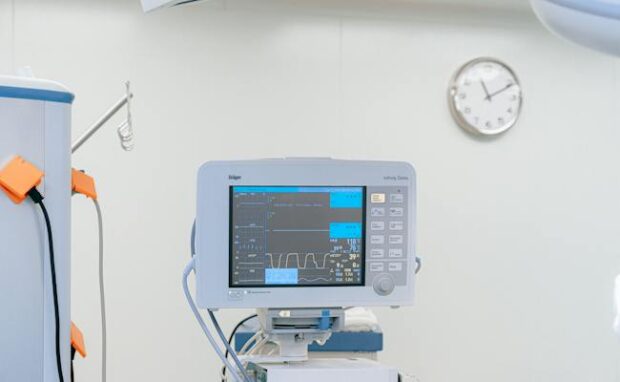Heart surgery AI guides medical decisions
Michigan Medicine researchers created an AI tool that predicts probable complications and death after cardiovascular surgery. It uses data from your age, blood pressure, cholesterol levels, and other factors to calculate your risk score. Moreover, the scientists designed it as a user-friendly web and mobile application.
Thanks to years of scientific and technological advancements, we’ve developed many wondrous medical treatments. However, many have unintended effects that can be difficult to anticipate, even for experts. This artificial intelligence program could identify those risks to help choose the safest and most effective treatments for patients.
This article will elaborate on the potential benefits of this heart surgery AI. Later, I will share other artificial intelligence tools that determine heart disease and autism risks.
How does this heart surgery AI function?

Michigan Medicine experts based their latest AI creation on the XGBoost machine learning algorithm. It uses data from 20 factors like age and cholesterol levels to estimate your percutaneous coronary intervention.
Interesting Engineering says it involves inserting a tiny balloon or a metal mesh tube called a stent into your blood vessel to improve blood flow. However, it may cause bleeding, kidney damage, and death.
The researchers tested it on over 100,000 patients who underwent PCI between 2018 and 2021. Consequently, they learned the tool surpassed other models at predicting outcomes like bleeding.
They also designed the heart surgery AI to be patient-friendly. They worked with the PCI Patient Advisory Council to ensure it is easy to use and understand.
You may access it anytime and anywhere on its web and mobile app. “We combined the predictive model with patient feedback from the PCI Patient Advisory Council to transform machine learning into this patient-centered, individualized risk prediction tool,” said senior author Hitinder Gurm.The program can help you and your doctor make informed decisions about your treatment. Also, it can teach you about PCI’s potential pros and cons.
You may also like: Robots are transforming medical education
These features give you more control and confidence over your health. Also, it could improve the quality and safety of this procedure to save more lives.
“This AI tool can recognize a wide array of outcomes after PCI and can be used by care providers and patients together to decide the best course of treatment,” said David E. Hamilton, M.D., the study’s lead author.
”It would not only help relay complex information to the provider quickly, but it could also be used to enhance patient education on the risks related to PCI.”
Other AI health inventions

Another group of researchers created an AI program predicting the likelihood of someone developing heart disease. They call it QUARTZ or QUantitative Analysis of Retinal vessels Topology and siZe).
It uses a database of retinal images from 88,052 UK Biobank participants and 7,411 people from a European Prospective Investigation into Cancer (EPIC)-Norfolk study. QUARTZ compares a patient’s eye scans to these photos so that it can diagnose potential issues. For example, if your eye scan is similar to a stroke patient, it would say you have a high risk for it.
On the other side of the world, Korean researchers made a deep-learning algorithm to detect childhood autism with 100% accuracy. They developed it by taking retinal photographs of 1,890 eyes of 958 participants under 19.
They also gathered retinal photographs from people with typical development (TD) matching the autism participants’ ages and sexes. In other words, they took eye photos of those without autism as a separate control group.
Then, the team created a convolutional neural network. It is a deep learning algorithm that trains AI models for ASD to assess and screen symptom severity.
You may also like: Hong Kong robots help children with autism
AI training involved 85% of the retinal images and corresponding scores from symptom severity tests. Conversely, they reserved the 15% for testing purposes.
It yielded a mean area under the receiver operating characteristic (AUROC) curve of 1.00. A “1” means the model predicts autism with 100% accuracy.
Surprisingly, the team claims removing 95% of the least important parts of the retinal pictures shows a negligible decline in accuracy. “Our models had promising performance in differentiating between ASD and TD using retinal photographs, implying that retinal alterations in ASD may have potential value as biomarkers,” said the study.
Conclusion
Researchers created a heart surgery AI that estimates complication risks after percutaneous coronary intervention. As a result, it could make the procedure safer.
Artificial intelligence has been improving cardiovascular health and beyond. I shared a few examples that let us detect health risks earlier than ever.
The age of AI enhances daily life as it advances rapidly. Learn more about its future impacts at Inquirer Tech. Also, gain more information on heart surgery AI in the European Heart Journal.